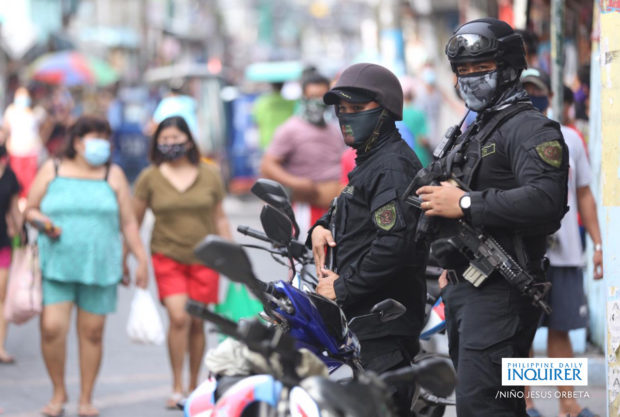Food security, peace and order woes feared with tighter quarantine rules
MANILA, Philippines — Trade Secretary Ramon Lopez on Thursday said he is not in favor of restrictions tighter than the current general community quarantine (GCQ) bubble imposed over Metro Manila, Bulacan, Rizal, Cavite, and Laguna.
Lopez said more stringent restrictions will lead to more problems beyond the COVID-19 pandemic like further lack of livelihood, food security, and even peace and order.
“Hanggang maaari talaga, tayo, nasa posisyon na hindi basta basta i-consider ‘yang tightening o mas mahigpit sa restriction kasi ang magiging problema natin, hindi na COVID, yung food security, hanapbuhay even security mismo, safety issues, peace and order,” Lopez said in an interview over Teleradyo.
(We are not inclined to consider tightening restrictions further because the problem won’t just be COVID. It will also be food security, livelihood, and even security in itself, safety issues, peace, and order.)
This is the reason why even an extension of the GCQ bubble beyond April 4 must be carefully studied in accordance with the country’s COVID-19 numbers.
“Mahihirapan po talaga kasi any extension, paguusapan talaga yan. Syempre, sabi naman natin, depende sa numero. Hindi naman tayo pwede magsalita nang tapos dito so titignan natin yung numero before April 4, titignan natin kung may improvement,” Lopez said.
(It will be really harder, any extension must be studied thoroughly, and it will depend on the numbers. We cannot speak as if it’s the final decision so we will look at the numbers before April 4, we will see if there’s any improvement.)
Within the areas of the GCQ bubble, restaurants, cafes, and establishments were limited to delivery, take-out, and outdoor dining services.
Mass gatherings were also prohibited anew.
In Metro Manila, gyms, spas, and internet cafes were barred from reopening during the GCQ bubble.
Malacañang said the government is expecting a 25 percent decrease in the number of cases by the end of the two-week GCQ bubble, but the OCTA Research group said the changes in COVID-19 trends will be likely seen in four weeks.

